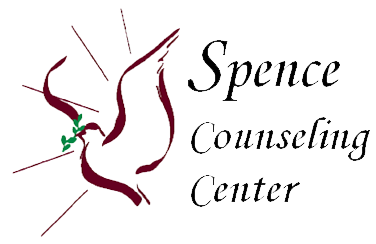Illicit substance abuse does not appear to be diminishing in the United States. News headlines are filled with reports about new forms of fentanyl, driving under the influence arrests, and the devastating human and financial toll on society.
According to Lewis (2023) in 2020:
- 1 million Americans aged 12 and older used illicit drugs.
- 5 million reported alcohol use in the past month.
- 6 million people (over 40%) were categorized as heavy episodic drinkers (Binge drinking).
- 23% of college students reported binge drinking.
These staggering numbers confirm what many of us already sense-addiction and alcoholism remain chronic problems in America, impacting more than 70 health conditions and countless families.
How Does Addiction Begin?
 The origins of addiction have been widely debated. To gain fresh perspective, I conducted an informal interview with three close friends. I asked each of them what they believed causes a person to become addicted. Their answers were eye-opening and deeply human:
The origins of addiction have been widely debated. To gain fresh perspective, I conducted an informal interview with three close friends. I asked each of them what they believed causes a person to become addicted. Their answers were eye-opening and deeply human:
- Childhood trauma
- Filling a void, such as unmet parental love
- Numbing emotional pain
- Lack of coping skills or self-control
- Genetics
- Family “sin patterns” or unhealthy generational cycles
Connecting Survey Results to Scholarly Models
Interestingly, all these perspectives connect to established models of addiction causes.
- Cognitive Behavioral and Learning Models: Capuzzi and Stauffer (2020) suggest that addiction often stems from attempts to cope with despair or to “numb the pain.”
- Family Disease Model: This model explains how addiction can emerge through parental modeling, generational patterns, and genetics (Capuzzi & Stauffer, 2020).
- Biopsychosocialspiritual Model: Addiction is not one-dimensional. Each person’s path into (and out of) addiction is shaped by biological, psychological, social, and spiritual factors.
Taken together, these models remind us that addiction is not just a medical or psychological issue: It touches the whole person.
A Spiritual Philosophy to Healing
 While research offers us valuable frameworks, I have found that spiritual formation is often the missing piece in recovery. In my own personal experience of recovery and treating others who have suffered from substance abuse, when clients integrate personal reflection, cognitive-behavioral therapy (CBT), and spiritual practices such as Bible study, prayer, silence, and solitude, they often experience profound transformation.
While research offers us valuable frameworks, I have found that spiritual formation is often the missing piece in recovery. In my own personal experience of recovery and treating others who have suffered from substance abuse, when clients integrate personal reflection, cognitive-behavioral therapy (CBT), and spiritual practices such as Bible study, prayer, silence, and solitude, they often experience profound transformation.
Jesus modeled compassion toward those who were broken. When a woman was caught in adultery, He defended her, asking, “The one who has never sinned to step forward” (John 8:7, NLT). Instead of shaming or punishing her, He forgave her. This principle of compassion carries powerful implications for how we walk alongside people struggling with addiction.
Scripture reminds us:
- “Just as God has comforted us, we as counselors can give the same comfort to others” (2 Corinthians 1:4, NLT).
- Without love, even our best efforts mean nothing (1 Corinthians 13:2-3, NLT).
- Love is patient, kind, enduring, and never loses hope (1 Corinthians 13:4-7, NLT).
Loving someone who is addicted is never easy. Anger, betrayal, and fear often surface. But spiritual maturity teaches us to respond with patience and hope. When counselors come alongside those who are addicted—helping them feel accepted, valued, and included—we embody Christ’s love.
As individuals dedicate themselves to God (Exodus 13:2, NLT), they discover their true belonging in Christ. Recovery becomes not just a personal journey, but also a communal one, where believers “share each other’s burdens” (Galatians 6:2, NLT).
Through this process, the hardened heart softens, faith is renewed, and healing becomes a lifelong journey of hope and restoration.
Written by Phillip A. Edwards, MA, PLMHP, PLADAC
References
Alcoholics Anonymous 2001 Alcoholics anonymous: The story of how many thousands of men and women have recovered from alcoholismAlcoholics Anonymous (Ed.). (2001). Alcoholics anonymous: the story of how many thousands of men and women have recovered from alcoholism (4th ed.). Alcoholics Anonymous World Services Inc. 202111200900321275871635
Capuzzi D Stauffer M D 2020 Foundations of addictions counselingCapuzzi, D., & Stauffer, M. D. (Eds.). (2020). Foundations of addictions counseling (4th ed.). Pearson Education, Inc. 20220831144820937422991
Lewis T F 2023 Substance abuse and addiction treatment: Practical application of counseling theoryLewis, T. F. (Ed.). (2023). Substance abuse and addiction treatment: Practical application of counseling theory (2nd ed.). Cognella Inc. 202509161457071559166312
Stoop D Arterburn S 1998 life recovery bible: Leading readers to the source of recovery-God himselfStoop, D., & Arterburn, S. (Eds.). (1998). The life recovery bible: Leading readers to the source of recovery-God himself. Tyndale House Publishers, Inc. 20211113101545422835588
Spence Counseling Center provides Christ-centered counseling services that integrate Biblical truth with professional therapeutic practices. With a team of experienced counselors, we help individuals, couples, and families find healing, hope, and growth through faith-based guidance. Our mission is to walk alongside clients as they align their hearts and minds with God’s Word, fostering lasting emotional, spiritual, and relational health. Wherever you may be in life’s journey, we are committed to helping you find strength, knowledge, and the skills to break the patterns that damage relationships and cause emotional pain. We help hurting people find genuine healing.

